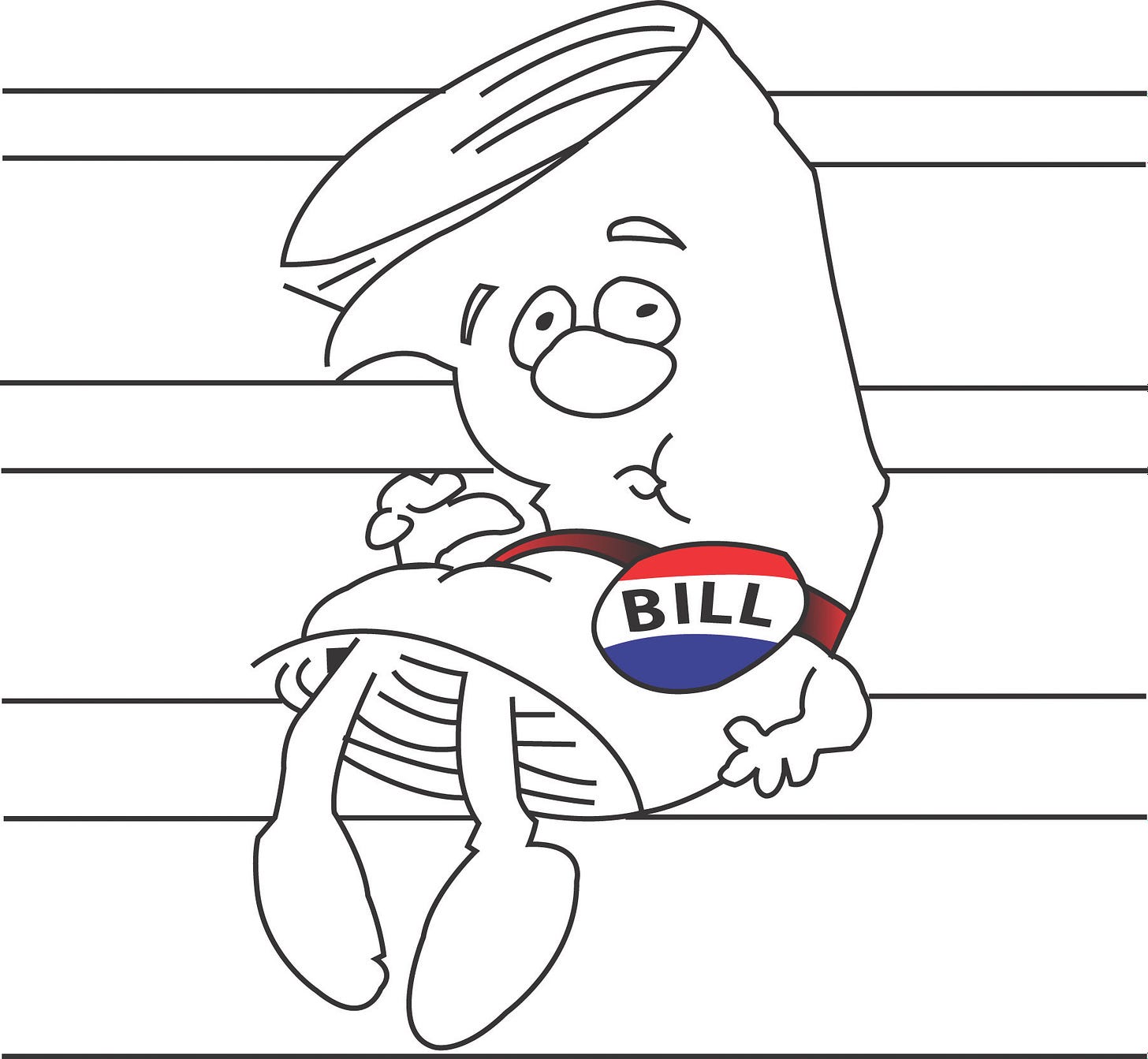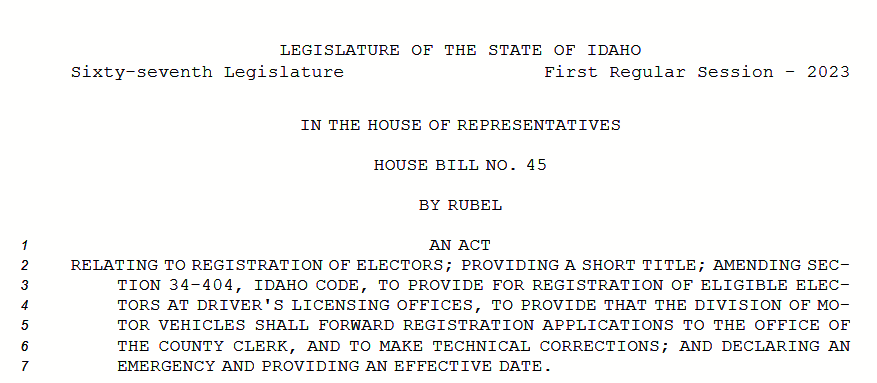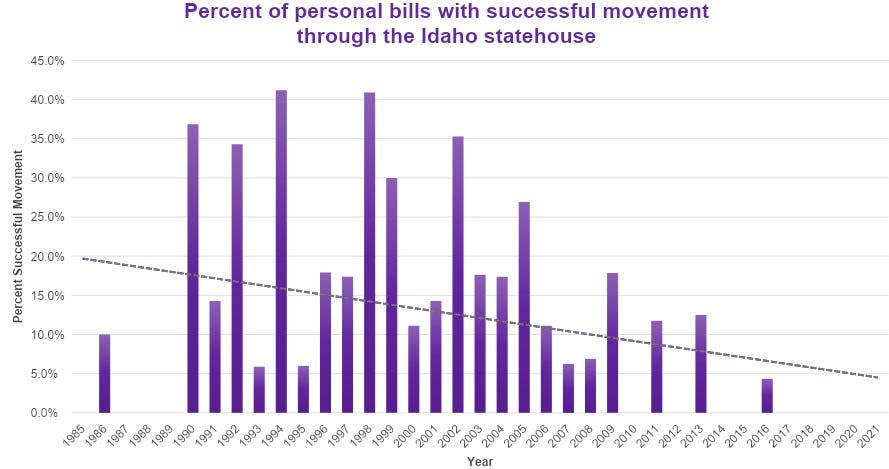As the 2023 legislative session nears the end of its first month, a lot of bills have been introduced. Many of them are troubling, and several people have asked me how best to combat these bad bills. For example, House Bill 45 would automatically register people to vote when they get their driver’s licenses. That’s awful, of course, since it cheapens voting and removes many of the safeguards we have in place to protect the franchise. Rest assured that this bill has zero chance of passing so you need not worry.
How do I know that? Because HB45 is what is called a personal bill.
Legislation typically originates in committees. A legislator submits the text of a proposed bill and it is giving a routing slip number, or RS. At this point it remains the private personal property of the legislator, and it is up to them whether or not to share it with the public. Eventually the RS is given a print hearing, wherein the sponsor introduces the bill to committee who then votes to have it printed and given a bill number. It is at this point that the bill appears on the legislature website.
From there the bill goes before the committee for first reading, at which time the sponsor answers questions from the committee and the public is invited to comment. The committee then votes on whether or not to send the bill to the floor.
Personal bills are different. With these, legislators do not introduce the bill to a committee but to the chamber as a whole, and they are sent to the House Ways and Means Committee for further consideration.
And by “further consideration” I mean thrown in the trash.
Normal bills that originate in the House display their committee as the author, while personal bills show the name of the sponsoring legislator. For example, HB45 says “By Rubel,” showing that this was a personal bill sponsored by Democrat Ilana Rubel.
The purpose of a personal bill is so the sponsor can make a point. Rep. Rubel can go to her Democratic constituents and say “I introduced this bill you wanted to see, but leadership wouldn’t allow it on the floor. Vote Democrat!” All the while she knew it never had a chance. That is why there is an effort now to rename them to informational bills, since all they do is make a point, or even to get rid of personal bills entirely.
Good idea, right? Why even bother with these pointless wastes of time?
Yet it wasn’t always this way. Prior to the Lawrence Denney and Scott Bedke speakerships, personal bills were a legitimate way to introduce legislation. My IFF colleague Fred Birnbaum did some great work documenting the history of personal bills. He found that, going back to 1985, more than 16% of personal bills introduced in the legislature passed at least one chamber. In some years that number went as high as 41%.
Maybe the answer isn’t to eliminate the personal bill, but to bring it back. Sure, it means we will have to fight harder against Democrat nonsense, but it also means that populist ideas such as eliminating taxes on groceries might get an up-or-down vote on the floor as well. Right now, committees and their chairmen wield tremendous power in the legislature. Perhaps that power needs to be reigned in, just a tad.
Food for thought, in any case.







Thank you for the reassurance about these personal bills, Brian. As always, I appreciate your insights.
Introducing a bad “personal” bill that the sponsor knows will be defeated in Ways and Means is still a bad idea. Virtual signalling by either party is not good government.
For the record, these so-called “motor voter bills” are truly bad, as we’ve seen in so many states. Thus, even planting a seed supporting such erosion of our elections should be exposed and called out.
Here is what I wrote yesterday when I first heard about this issue:
Idaho legislators should defeat H0045 by RUBEL | VOTERS – Amends existing law to provide for automatic voter registration through the Division of Motor Vehicles.
The bill is sponsored by Democrat ILANA RUBEL: https://legislature.idaho.gov/legislators/membership/2021/id2888/
Link to Bill Summary: https://legislature.idaho.gov/sessioninfo/2023/legislation/H0045/
Link to Full Bill: https://legislature.idaho.gov/sessioninfo/billbookmark/?yr=2023&bn=H0045 This is "motor voter" and is NOT as innocuous as it sounds, despite its stated minimal fiscal impact. This bill should be stopped, as it could encourage more election fraud. Registering to vote should be a conscious act, and should be accompanied by rigorous citizenship and background checks. It's already plenty easy to register to vote in Idaho: https://voteidaho.gov/ States that have Motor Voter laws ALL have more election fraud than Idaho: https://www.ncsl.org/elections-and-campaigns/automatic-voter-registration Potential fraud concerns raised here (just a few examples):
* https://www.foxnews.com/politics/house-republicans-bill-motor-voter-law.
* https://www.cato.org/testimony/motor-voter-act-voter-fraud
* https://www.latimes.com/california/story/2019-08-09/duplicate-voter-records-audit-california-motor-voter-system
We must strengthen, not weaken, our election laws. The proposed Bill RS30032 / H0045 weakens our election laws.
Thanks for a good report and explanation. I think personal bills have value and they certainly support representative government. And regarding Dems or any terrible bill - that splits both ways. An opponent can campaign against the "stupid bill" so and so introduced. It puts legislators on record.